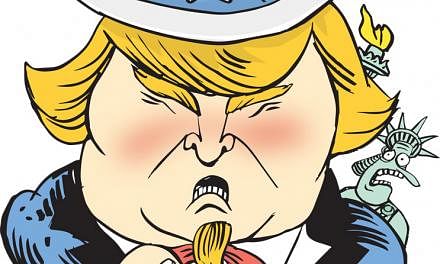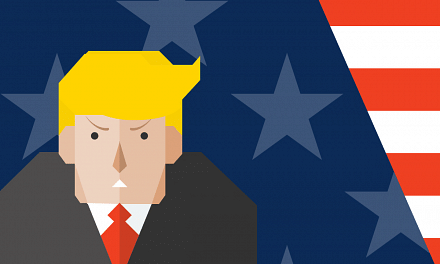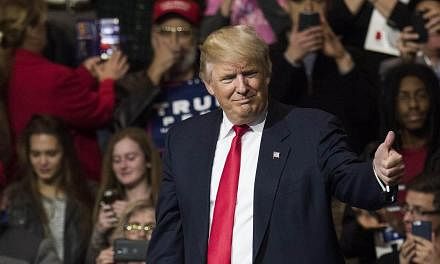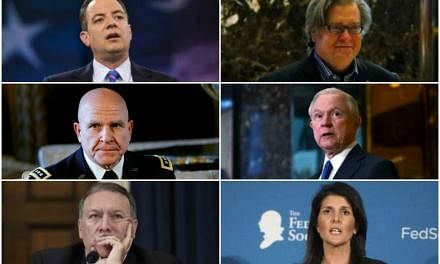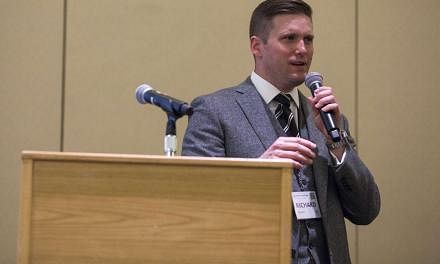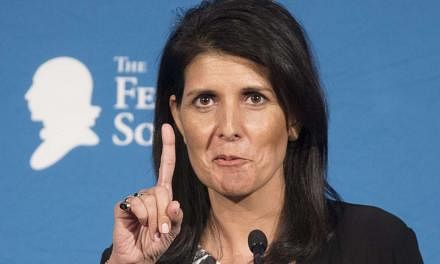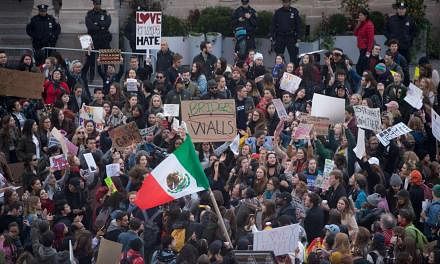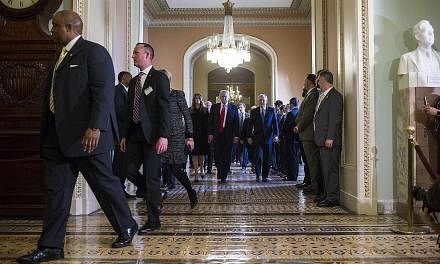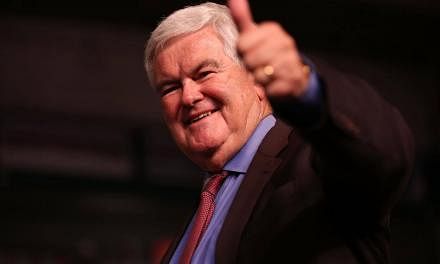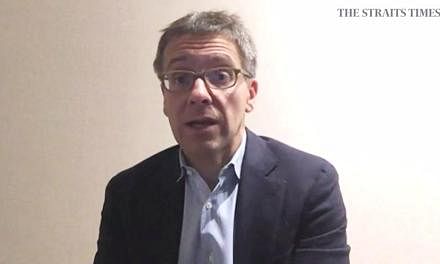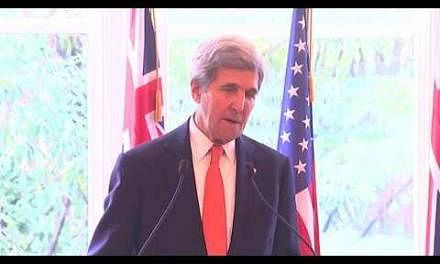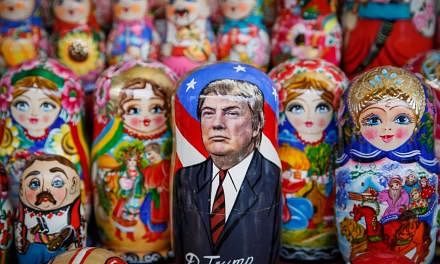Mr Donald Trump's stunning victory will force the US to confront a series of never-before-seen entanglements over the President-elect's private business, debts and rocky financial history.
No laws prohibit Mr Trump from involving himself in his private company, Trump Organisation, while serving in the highest public office. And he has so far resisted the longstanding presidential tradition of giving his holdings to an independent manager, stoking worries of conflicts of interest over his businesses' many financial and foreign ties.
Mr Trump's business empire of hotels, golf courses and licensing deals in the US and abroad, some of which have benefited from tax breaks or government subsidies, represents an ethical minefield for a commander-in-chief who would oversee the US budget and foreign relations, some analysts say.
His companies are partially indebted to banks in Germany and China. On financial disclosure filings, Mr Trump listed involvements in more than 500 companies, some in countries where the US has sensitive diplomatic or financial relationships, such as Saudi Arabia, the United Arab Emirates and China.
These entanglements are unprecedented, unavoidable and "troubling", said Mr Ken Gross, a former elections enforcement official and lawyer who has advised presidential candidates from both parties, after the election. "He has investments in businesses in unfriendly countries and the businesses are often tied to those unfriendly governments."
Ethics officials urged Mr Trump during his campaign to pledge that he would sell his businesses or cede them to an independent authority. Many modern presidents went beyond, placing their assets in "blind trusts" controlled by independent trustees.
But Mr Trump has refused to make such a pledge, saying only that he would give companies to his children and executives to run. Attorneys said that would put little distance between a President Trump and the businesses he spent a lifetime grooming and profiting from."It's silly to suggest there's any avoidance of conflict by having your family run the interests. He talks to his family all the time," said Mr Trevor Potter, a former Federal Election Commission chairman and general counsel for former president George H.W. Bush and Senator John McCain, in September.
Members of Congress must recuse themselves from government dealings touching on their own financial interests, according to strict regulations in the Ethics in Government Act of 1978. Presidents, however, were made exempt from those rules on the belief they could further complicate the wide-ranging job.
In the run-up to the election, Mr Trump said: "If I become president, I couldn't care less about my company. It's peanuts," he said during a January debate. "Run the company, kids. Have a good time."
His son Donald Trump Jr has insisted that Mr Trump's holdings would go into a blind trust managed by him and his siblings Eric and Ivanka.
"We're not going to be involved in government," Mr Trump Jr said in September. "He wants nothing to do with (the company). He wants to fix this country."
Mr Trump has voiced interest in his companies reaping benefits of his rise to public power. In June, he tweeted about Trump University, the real-estate seminar programme now in a federal civil fraud trial: "After the litigation is disposed of and the case won, I have instructed my execs to open Trump U(?), so much interest in it! I will be pres."
Trump business and campaign officials did not immediately respond to requests for comment on any timeline or details for the next steps Mr Trump would take with his business empire.
His company oversees eight US hotels. At the new Trump International Hotel in Washington's Old Post Office Pavilion, which his company leases from the federal government, Mr Trump now effectively serves as both the landlord and the tenant. It is unclear how talks over lease payments or building maintenance would be conducted.
The Trump Organisation is also set to receive federal tax credits to preserve the project's historic nature - a programme his administration will now oversee. Mr Trump has an estimated US$42 million (S$59 million) of his own company's money in the project.
Trump real-estate holdings and other companies owe hundreds of millions of dollars to domestic and foreign banks, which ethics advisers say could tilt his judgment or independence. Lenders include the Bank of China and German financial giant Deutsche Bank.
The full extent of Mr Trump's business relationships around the world remains unknown. He has refused to release his tax returns, which would outline key information about his financial holdings and foreign accounts.
WASHINGTON POST
